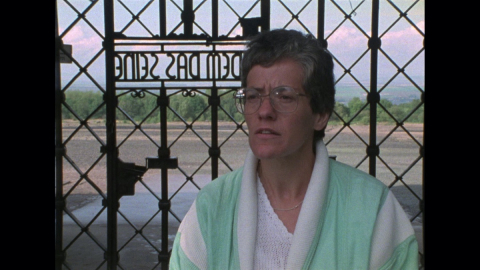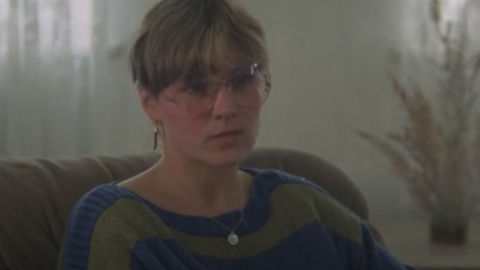East Germany
There was hardly a more eloquent symbol of the Cold War than this country divided by the Iron Curtain, and its capital divided by a wall. And that was well in line with the nature of the local regime. We were under permanent surveillance and shooting was very very difficult. The East Germans, compared to the others, had two advantages: relatives in the West and the chance to watch West German TV, the only exception being around Dresden, which was a kind of a blind spot for the transmitters. It was interesting that in statistical terms this was where the highest number of refugees to the West came from. With slight exaggeration one might say that West German TV had a stimulating effect beyond the Iron Curtain, as it distracted people from the reality of East Germany. For two days, maybe more, we waited in Berlin to get permission to shoot in an industrial combine, but nothing was happening. And it was necessary to shoot that stillness, which was another problem. This meant not only congresses or parades, the outer ritualisation, but also the empty public spaces, so typical for the regime, as every gathering of people was suspicious and as such was not permitted. In the end we were able to shoot an interesting alternative Protestant association, Kirchentag von Unten, where pastors were found who tolerated independent meetings at their churches. It was obviously a risk for them, but they got away with it. Young people went there who had no direct political requirements but were close to the Green Party on the other side of the Berlin Wall. There was an “alternative” atmosphere there. They took advantage of a loophole in the regime; the church sensed it and thus provided a shelter for independent activities.
Jacques Rupnik
Interviews
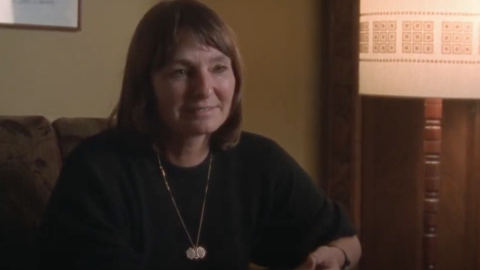
Monika Maron25. 9. 1987 | Berlin, Germany
Monika Maron was born on June 3, 1941 in Berlin. Her maternal grandfather was a Polish Jew who had converted to Baptism, who moved from Lodz to Berlin with his wife, a Polish Catholic who had also converted to Baptism, in 1907 in order to build a...
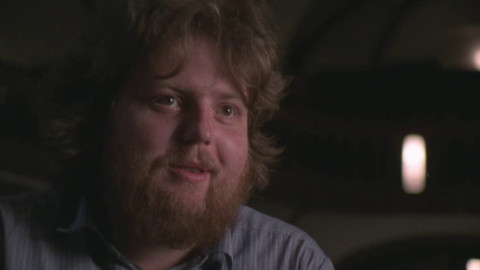
Lutz RathenowBerlin, Germany
Lutz Rathenow was born in Jena in 1952. From 1973 he studied German philology and history in Jena. He was the founder and leader of the opposition working group "Literature in Jena", which was banned in 1975. In connection with the expatriation of...
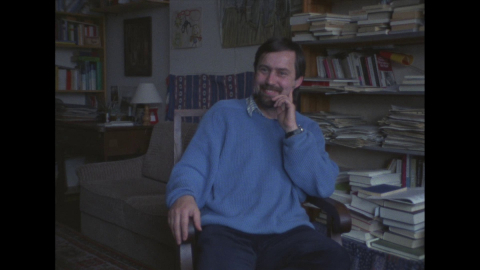
Jürgen Fuchs29. 9. 1987 | West Berlin, Germany
Jürgen Fuchs was born on 19 December 1950 in Reichenbach in Vogtland; he died on 9 May 1999 in Berlin. Fuchs was a German writer, civil rights activist and representative of the opposition in the GDR, who continued to be observed by the Stasi in the...
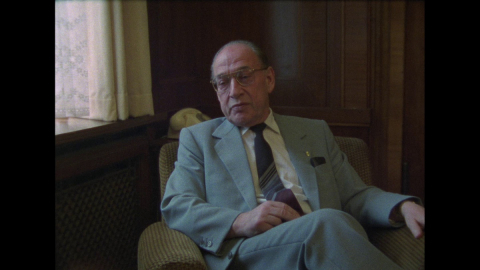
Klaus Gysi25. 9. 1987 | Berlin, East Germany
Klaus Gysi was born in Neukölln on March 3, 1912; he died in Berlin on March 6, 1999. He was active in the communist resistance to National Socialism, served as Minister of Culture from 1966 to 1973, and was the GDR's State Secretary for Church...
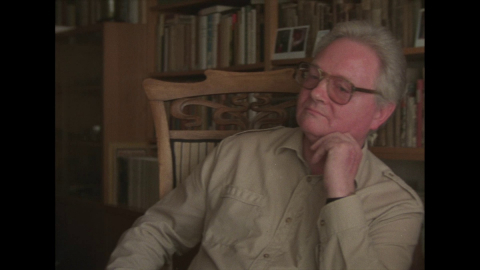
Claus Hammel28. 9. 1987 | East Germany
Claus Hammel was born on December 4, 1932 in Parchim; he died on April 12, 1990 in Ahrenshoop. Hammel was a German playwright. Claus Hammel was the son of a master saddler. The family lived in Parchim until 1934 and then moved to Demmin, where Claus...
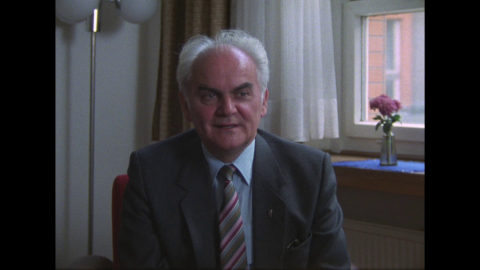
Heinz Hümmler28. 9. 1987 | Berlin, East Germany
Heinz Hümmler was born in March 1929; Hümmler was Prorector for Education and Training at the Academy of Social Sciences at the Central Committee of the SED until 1984, then Prorector for Research.
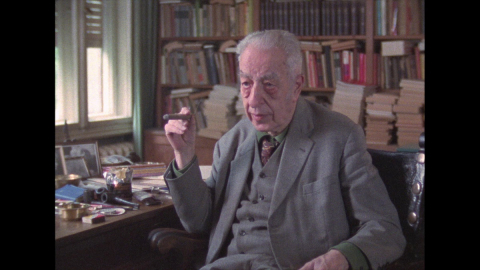
Jürgen Kuczynski25. 9. 1987 | Berlin, East Germany
Jürgen Kuczynski was born in Elberfeld (now Wuppertal) on 17 September 1904; he died in Berlin on 6 August 1997. Kuczynski was a German economic historian and economist. Jürgen Kuczynski was born into a wealthy Jewish family as one of six children....
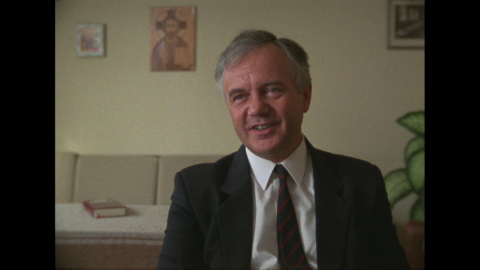
Manfred Stolpe28. 9. 1987 | Berlin, East Germany
Manfred Stolpe was born in Stettin on May 16, 1936; he died in Potsdam on December 29, 2019. Stolpe was a German church lawyer and politician (SPD). He was the Minister President of the state of Brandenburg from 1990 to 2002 and the Federal Minister...
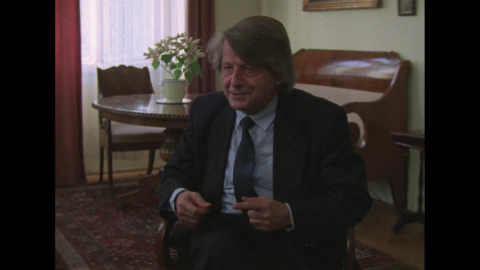
Wolfgang LeonhardMunich, West Germany
Wolfgang Leonhard was born on April 16, 1921 in Vienna as Wladimir Leonhard (since 1945 he bore the first name Wolfgang); he died on August 17, 2014. Leonhard was a German historian and publicist. His communist-minded mother emigrated with him to...
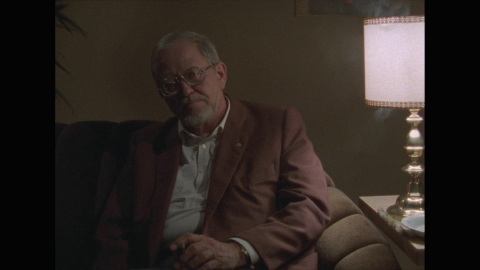
Karl Eduard von Schnitzler23. 9. 1987 | Berlin, East Germany
Karl-Eduard Richard Arthur von Schnitzler was born on 28 April 1918 in Dahlem; he died on 20 September 2001 in Zeuthen. Schnitzler was a German journalist. During the Second World War, as a soldier in the Wehrmacht, he was transferred to the...
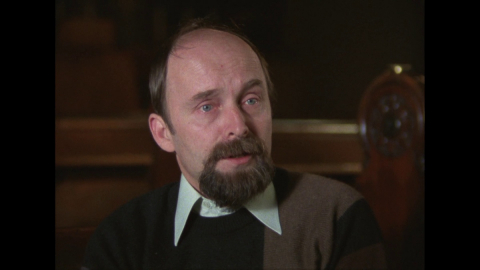
Rainer Eppelmann27. 9. 1987 | Berlin, East Germany
Rainer Eppelmann was born on 12 February 1943 in Berlin. Eppelmann is a German Protestant pastor, civil rights activist and politician (DA, CDU). After gaining notoriety within the GDR as an oppositionist, he was Minister for Disarmament and Defence...
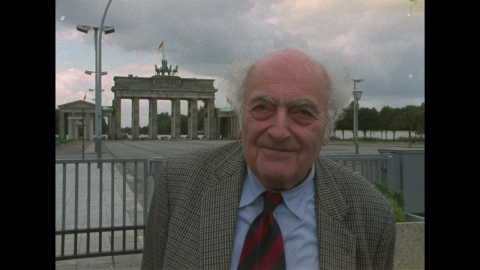
Stefan Heym28. 9. 1987 | Berlin, East Germany
Stefan Heym was born in Chemnitz, Germany, on April 10, 1913; he died in En Bokek, Israel, on December 16, 2001. Heym was a German writer and one of the most important writers of the GDR. From 1994 to 1995 he was a member of the PDS in the 13th...
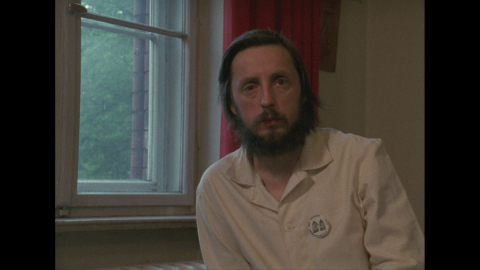
Wolfgang Templin27. 6. 1987 | ?
Wolfgang Templin was born in Jena on 25 November 1948. Templin is a German GDR civil rights activist and publicist. Templin grew up in the GDR and, after graduating from high school in 1965, initially began an apprenticeship as a book printer, which...

